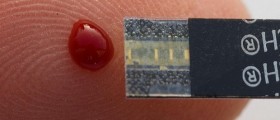
Diabetes and the main types
Diabetes is created due to interactions of many factors, which include genetic factors, environmental causes and the life habits. All these causes can lead to the decreased insulin secretion, while in some cases, insulin production can completely stop. Via genetics, secreted insulin can be defected, not performing its function well, which also ends in diabetes. Diabetes mellitus, type one, affects 15 to 20% of diabetic patients.
Type 1a is caused by autoimmune destruction of the cells that produce insulin and those cells are located in pancreas, in the area called Langerhans. Autoimmune means that antibodies in our organism, which are responsible for defense against infection, viruses, bacteria and others, eliminate beta cells that produce insulin. The real cause of this is still not understood fully.
Type 1b is an idiopathic form and it is characterized by reduced insulin secretion, though this is not because of the autoimmune destruction. Theory says that this is inherited form of diabetes.
Type 1 diabetes and the main causes
For the type one, it is important to know that viruses also have a role in its creation. Type 1 diabetes is more common in younger population, it does not affect newborn infants, and it is rare in the age group above 30. Most commonly affected are children between 5 and 12 years old. Possible causes are increased hormonal excretion, which has an opposite role to insulin (growth hormone, estrogen in puberty). This type usually affects in spring and autumn, since in this period, infections that attack pancreas are more frequent. Viruses that cause those infections are coxsackie b, mumps and herpes. Also, Caucasians get more affected with this type of diabetes. What should also be mention is that this is a hereditary illness. There is a big possibility that, if both parents are diabetic, and their child will develop it as well. If one parent has it, the risk is higher if that parent is the father.
The most common causes of type 1 are viruses. Some of them induce invasion on beta cells, leading to insulitis; they stay in beta cells for a long time and alter the cell proteins that occupy the surface of the cell and thus change the immunological response.
Another mechanism that viruses stimulate is excretion of alpha interferons, which are responsible for excretion of antigen, which stimulates the production of antibodies. In this way, diabetes can be caused only if there is genetic predisposition for diabetes. Diabetes type one targets younger population and requires constant insulin therapy and change of life habits.

















Your thoughts on this
Loading...